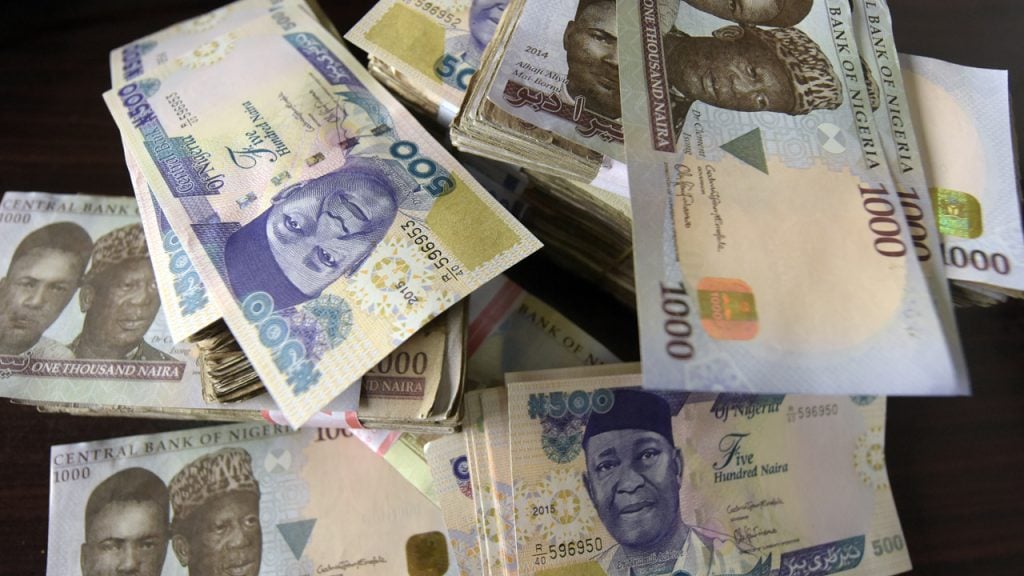
Nigeria’s financial markets came under pressure on Monday as the naira weakened and equities declined, following weekend remarks by U.S. President Donald Trump threatening military action over alleged Christian persecution in Nigeria.
At the official foreign exchange window, the naira slipped from its 2025 peak of ₦1,421.73/$ to ₦1,436.34/$ a sharp 1.03 per cent drop, equivalent to ₦14.61 lost in one day, according to data from the Central Bank of Nigeria. In the parallel market, it further weakened to ₦1,455 per dollar.
The currency’s slide came amid mounting geopolitical tension after Trump, via his Truth Social platform on Saturday, named Nigeria a “country of particular concern” and directed the U.S. Department of War to prepare for “possible action” if religious killings continued. The announcement sparked fears among investors of rising instability and potential diplomatic strain.
At the Nigerian Exchange Limited, bearish sentiment prevailed as the All-Share Index fell 0.25 per cent to close at 153,739.11 points, trimming year-to-date gains to 49.37 per cent. Market capitalisation dipped by ₦245.88 billion to ₦97.58 trillion.
Selloffs in major stocks such as Aradel (-9.21 per cent) and Access Corp (-3.07 per cent) dragged the market lower, with 38 equities declining against 19 gainers. Union Dicon (+9.93 per cent) led the gainers’ chart, while Honeywell (-10.00 per cent) topped the laggards.
Trading activity dropped sharply as total volume and value fell by 87.94 per cent and 44.64 per cent, respectively, to 627.5 million units valued at ₦25 billion. United Bank for Africa dominated trades, accounting for 21.8 per cent of total volume and 22.2 per cent of total value.
Sectoral performance was mixed, with losses recorded in Oil & Gas (-3.94 per cent), Commodity (-1.85 per cent), Insurance (-1.48 per cent), and Banking (-0.22 per cent), while Consumer Goods gained 0.49 per cent. The Industrial sector closed flat.
Nigeria’s Eurobond market also reflected investor caution. Cowry Assets Management reported that average yields rose by five basis points to 7.70 per cent, signalling weakened demand amid broader emerging-market selloffs. Bloomberg confirmed that Nigeria’s dollar bonds were the worst performers globally on Monday, with the 2047 maturity falling as low as 0.6 cents to 88.26 cents on the dollar.
The Chief Executive Officer of CFG Advisory, Tilewa Adebajo, however, described the development as temporary, noting that “closing prices in global markets today reflect recovery.” He said Nigeria’s removal from the Financial Action Task Force Grey List supported more stable market fundamentals.
Meanwhile, the CEO of the Centre for the Promotion of Private Enterprise, Dr. Muda Yusuf, warned that Trump’s threat could dampen investor confidence. “Such statements send unsettling signals to investors, heighten risk perception, and undermine confidence in Nigeria’s economy,” he said.
Yusuf added that the path forward should be diplomatic rather than confrontational, stressing that “unilateral military action would destabilise Nigeria’s economy, threaten regional stability, and worsen humanitarian conditions.”

